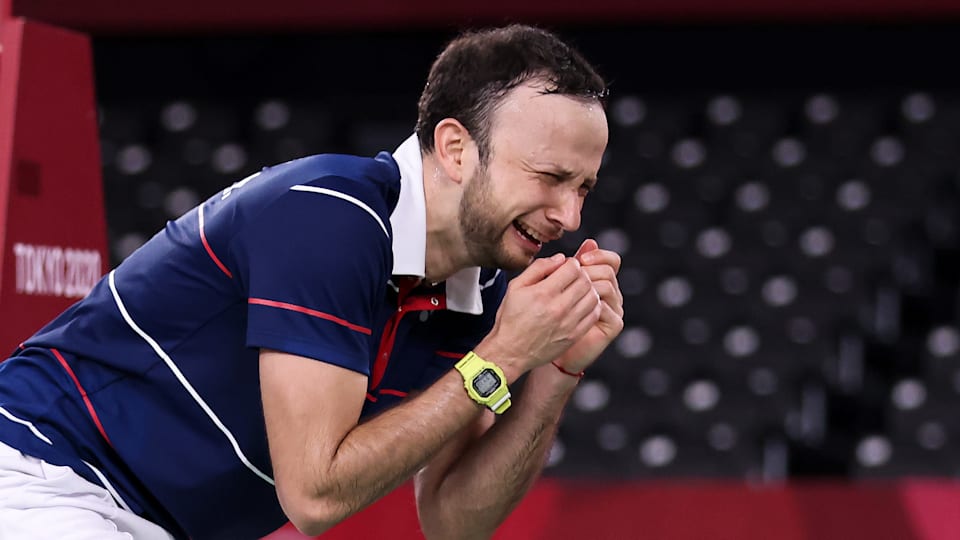Kevin Cordón: Winning for his brother
In his fourth Games, Cordón is one win away from his country's second ever Olympic medal. Here's his story.

In no particular order, one would list China, Denmark, Japan, Indonesia, India and Malaysia as among the superpowers of badminton.
Asia would be certainly the dominant continent in the sport, which makes Kevin Cordón’s achievements at Tokyo 2020 all the more remarkable.
In his fourth Olympic Games, the 34-year-old from Guatemala has reached the semi-finals of the men’s singles tournament and now faces Rio 2016 bronze medallist Viktor Axelsen for a place in the final.
Even were he to lose that, Cordón would still have a chance at bronze.
In the group stages, he beat Mexico’s Lino Muñoz before stunning world number nine NG Ka-long Angus from Hong Kong, China to reach the last 16.
Next came victory over Dutch shuttler Mark Caljouw, dropping a game for the first time in Tokyo, before a straight games quarter-final triumph over HEO Kwanghee of the Republic of Korea, the man who knocked out world number one MOMOTA Kento.
Cordón has brought immense pride to his homeland and, driven by the same dream he had back at Beijing 2008 as well as the memory of his brother Marvin, he is one win away from a medal which would have been unthinkable only last week.
I feel like the luckiest man in the world because I came back from a bad injury and the death of my brother.
I am a new person.
Who is Kevin Cordón?
Named after English football hero Kevin Keegan, Cordón initially harboured ambitions in that sphere.
But the thought of representing his country in the Olympic Games made him change tack, and he did so after travelling alone to the capital – Guatemala City – for years to train.
“The reason I chose to play badminton was the Olympics. I achieved my dream at Beijing 2008, and in my fourth Games I continue to have the same dream, and enjoy it even more than before.”
Aged just 21, Cordón was chosen to carry his nation's flag for his country at the Opening Ceremony.
He was given a bye through to the second round of the men’s singles, but went down in two close games to third seed BAO Chunlai.
Four years later, the tournament switched to an initial group phase where Cordón surprised home favourite and 15th seed Rajiv Ouseph to progress to the last 16.
After a tight opening game, he went down in straight games to Japan’s SASAKI Sho.
A year later, he was on the sidelines through injury – which has afflicted him throughout his career – and the loss of his brother saw him question whether he wanted to continue in badminton.
“I feel like the luckiest man in the world because I came back from a bad injury and the death of my brother. I am a new person.
“Life goes on and when you trust in God, you can come out of those difficult situations.”
Every win is marked by a “shout to heaven”, dedicating the triumph to his late brother.
At Rio 2016, Cordón suffered an ankle injury in his opening defeat to Poland’s Adrian Dziolko and was forced to withdraw from the competition.
Five years on, and he’s now won more matches in Tokyo than he had in his previous three Games combined.
While he has enjoyed continental success with Pan Americans Games titles in 2011 and 2015, as well as silver in 2007 and bronze in 2019, this is by far his finest hour.
Speaking to Olympics.com after reaching the quarter-finals, he said, “When I qualified for the Olympics for the first time, it was a dream to be there and play even one game. Afterwards, I started dreaming of winning more matches. Now I’ve already won three here, I can’t believe it.”
Now he has won four, and one more victory would secure him Guatemala’s second Olympic medal in history, the first coming courtesy of Erick Barrondo in the London 2012 20km race walk.
